The Kenan Institute of Private Enterprise utilized PhD students to develop student-generated content on entrepreneurial topics based upon attendance at the Frontiers of Entrepreneurship conference. Through the experience, students were exposed to cutting-edge research reports and policy debates led by the nation’s leading academics, practitioners, and policymakers within the field of entrepreneurship. We would like to acknowledge and thank the Marion Ewing Kauffman Foundation for their support of the students and their insights.
2020 Conference Insights
Entrepreneurship in Regulated Markets: Burden or Boon?
Eric Volmar, Stanford University
- Regulation can stifle markets and limit innovation—but regulation can also result in breakthrough business models facing less competition.
- Investors invested record levels of funding in regulated markets in 2019, most notably in the fintech, medtech, biotech, and edtech markets.
- Entrepreneurs are developing new ways to navigate regulatory complexity to create and capture value through business model innovation.
- Entrepreneurship in regulated markets requires deep knowledge of the context and an ability to walk a fine line between conforming to the environment and pushing institutional boundaries.
Surviving the “Valley of Death”: How Social Distancing Will Affect American Organizations
Tyler Whittle, Stanford University
- Surviving the proverbial “Valley of Death” has taken on a new, double meaning for businesses during the current global crisis of COVID-19.
- Small businesses are struggling to survive due to social distancing restrictions. For these business, regular cash flow is critical for survival.
- A few organizations, however, are experiencing an unprecedented influx of demand. These organizations must focus on their talent, product(s) and business model to capitalize on this increased demand and grow sustainably.
Social Entrepreneurship: Mechanisms and Challenges
Kelly Posenau, University of Chicago Booth School of Business
- Social entrepreneurship and impact investing are intriguing ways of solving the United Nation’s Sustainable Development Goals’ funding gap, yet both still face significant challenges, including measurement inconsistency and the absence of a robust framework for assessing risk and return relationships between dual objectives.
- By combining the efficiency of business with the social welfare goals of philanthropy in order to grow businesses that solve social and environmental problems, social enterprise looks, on paper, like one of the more effective mechanisms for investors to create impact through their portfolio allocation choices.
- However, there is only a limited body of literature dedicated to assessing just how well impact investing performs as an asset class. There is currently no clear consensus on financial performance, much less on impact creation.
- The key challenge facing academics is assessing the relationship of risk and return between impact and financial performance. An accurate framework is necessary for arguing that social entrepreneurship is, in fact, more efficient at delivering impact than philanthropy alone. The key challenges facing practitioners are ensuring that social entrepreneurs from underrepresented areas can also access capital, and that companies and funds are practicing what they preach.
Building Entrepreneurship Ecosystems: A Cautionary Tale
Doris Kwon, Yale School of Management
- Entrepreneurship has become a critical part of regional economic development policies. As regional policies such as entrepreneurial ecosystems continue to be developed, academic research looks to provide a few cautionary details to policymakers.
- While high-growth firms must be differentiated from other small businesses, focusing exclusively on these firms may backfire on a region. A portfolio approach that supports all types of ventures will help sustain economic growth while mitigating negative externalities.
- Initiatives must be in place to retain firms as they begin to expand. This can be done through providing adequate financial support while cultivating and retaining quality talent.
The Changing Startup Financing Landscape: Impact to Entrepreneurial Ecosystems
Melody Chang, Yale University
- From accelerators and angel investors to crowdfunding, the profile of startups and early-stage capital has changed dramatically over the past 15 years.
- Evidence suggests that these emerging sources of capital provide a meaningful role in the growth of early-stage ventures and enrich local entrepreneurial ecosystems.
- Angel investing and crowdfunding communities provide opportunities to a more diverse set of entrepreneurs and are more geographically dispersed than traditional investors such as venture capital.
Given more options for financing sources, entrepreneurs should strategically choose the capital providers that will be best for their ventures
Has the JOBS Act of 2012 Helped Startups?
Robert Hill, Ph.D. Candidate in Strategy and Entrepreneurship, University of North Carolina Kenan-Flagler Business School
- While many have celebrated the reduction in regulation of small businesses as a result of the Jumpstart Our Business Startups (JOBS) Act of 2012, others have criticized the act for not going far enough to support small businesses.
- Although a major intent of the act was to reduce the costs for Emerging Growth Companies (EGCs) to conduct an initial public offering (IPO), research on the effectiveness of this goal is mixed.
- The JOBS Act enabled the new use of crowdfunding and other alternative means to raise funding, though the Regulation R private placement mechanism is still the most common method.
- Policymakers and academics need to work together to determine the overall impact of the JOBS Act of 2012 on job creation, innovation and entrepreneurship.
Is the Startup Compensation Model Broken?
Travis Howell, Assistant Professor of Strategy, Paul Merage School of Business, University of California, Irvine
- Startups often offer a relatively lower cash salary, but combine it with generous stock options. The expectation is that if everyone in the organization works hard and the company grows, the employee will receive a significant cash-out at a near-term liquidity event (e.g., an IPO).
- This compensation model has certain historical advantages, but more recently, disadvantages have been observed, leading many to wonder if the current compensation model is broken.
- Instead of emphasizing compensation, startups should focus on helping employees feel a sense of purpose in the work, and on building a company culture that makes people want to stay.
Institutional Intermediaries and Entrepreneurship in Emerging Markets
Qingqing Chen, Wharton School of the University of Pennsylvania
- Institutional intermediaries can help mitigate institutional voids in emerging markets to benefit business growth.
- Entrepreneurs in these economies can leverage institutional intermediaries to signal their quality and to build business capabilities. Different entrepreneurs can benefit differently from the same intermediary. Entrepreneurs should be clear about their goals when they plan to leverage intermediaries to scale up the business.
- Since institutional intermediaries are supplementary to existing settings, their impact depends on their fitness to the institutional environment. While leveraging the strength of existing institutions can help maximize the returns of public resources, intermediaries that conflict with existing institutions may hinder firm growth instead.
Research Insights: Has Patent Policy Kept Pace with Innovation?
N. Vera Chau, University of Chicago Booth School of Business
- The ways in which firms, entrepreneurs, investors and the government react to changes in patent policy can be unpredictable. Patent reform should be a dynamic, continuous process.
- Patent policy has wide-reaching and unexpected implications for innovation. These include cross-border access to capital, trade agreements and entrepreneurship.
- Reforming the system requires understanding not just where patent policy does and does not work, but how firms use patents to their strategic advantage and our best efforts to predict how they will react to changes.
- Patent policy does not simply govern what will be invented, but rather patent protection requirements must be subject to constant re-examination as scientific discovery and innovation continues. Recent examples include the limits of software, artificial intelligence and gene sequencing.


 A Frank Hawkins Kenan Institute of Private Enterprise Event
A Frank Hawkins Kenan Institute of Private Enterprise Event